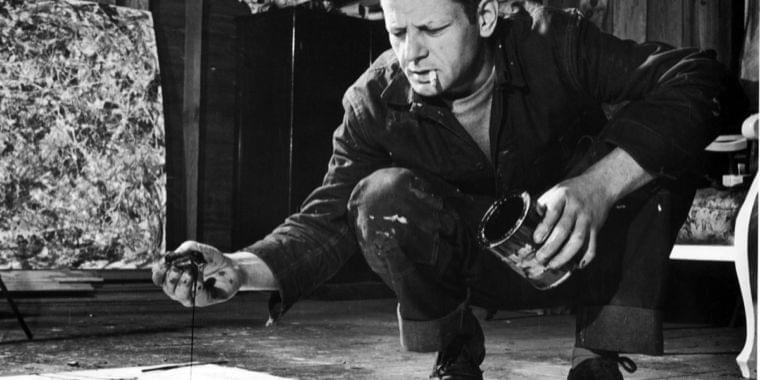If you’ve ever drizzled honey on a piece of toast, you’ve noticed how the amber liquid folds and coils in on itself as it hits the toast. The same thing can happen with 3D and 4D printing if the print nozzle is too far from the printing substrate. Harvard scientists have taken a page from the innovative methods of abstract expressionist artist Jackson Pollock —aka the “splatter master”—to exploit the underlying physics rather than try to control it to significantly speed up the process, according to a new paper published in the journal Soft Matter. With the help of machine learning, the authors were able to decorate a cookie with chocolate syrup to demonstrate the viability of their new approach.
As reported previously, Pollock early on employed a “flying filament” or “flying catenary” technique before he perfected his dripping methods. The paint forms various viscous filaments that are thrown against a vertical canvas. The dripping technique involved laying a canvas flat on the floor and then pouring paint on top of it. Sometimes, he poured it directly from a can; sometimes he used a stick, knife, or brush; and sometimes he used a syringe. The artist usually “rhythmically” moved around the canvas as he worked. His style has long fascinated physicists, as evidenced by the controversy surrounding the question of whether or not Pollock’s paintings show evidence of fractal patterns.
Back in 2011, Harvard mathematician Lakshminarayanan Mahadevan collaborated with art historian Claude Cernuschi on an article for Physics Today examining Pollock’s use of a “coiling instability” in his paintings. The study mathematically describes how a viscous fluid folds onto itself like a coiling rope—just like pouring cold maple syrup on pancakes.









Comments are closed.